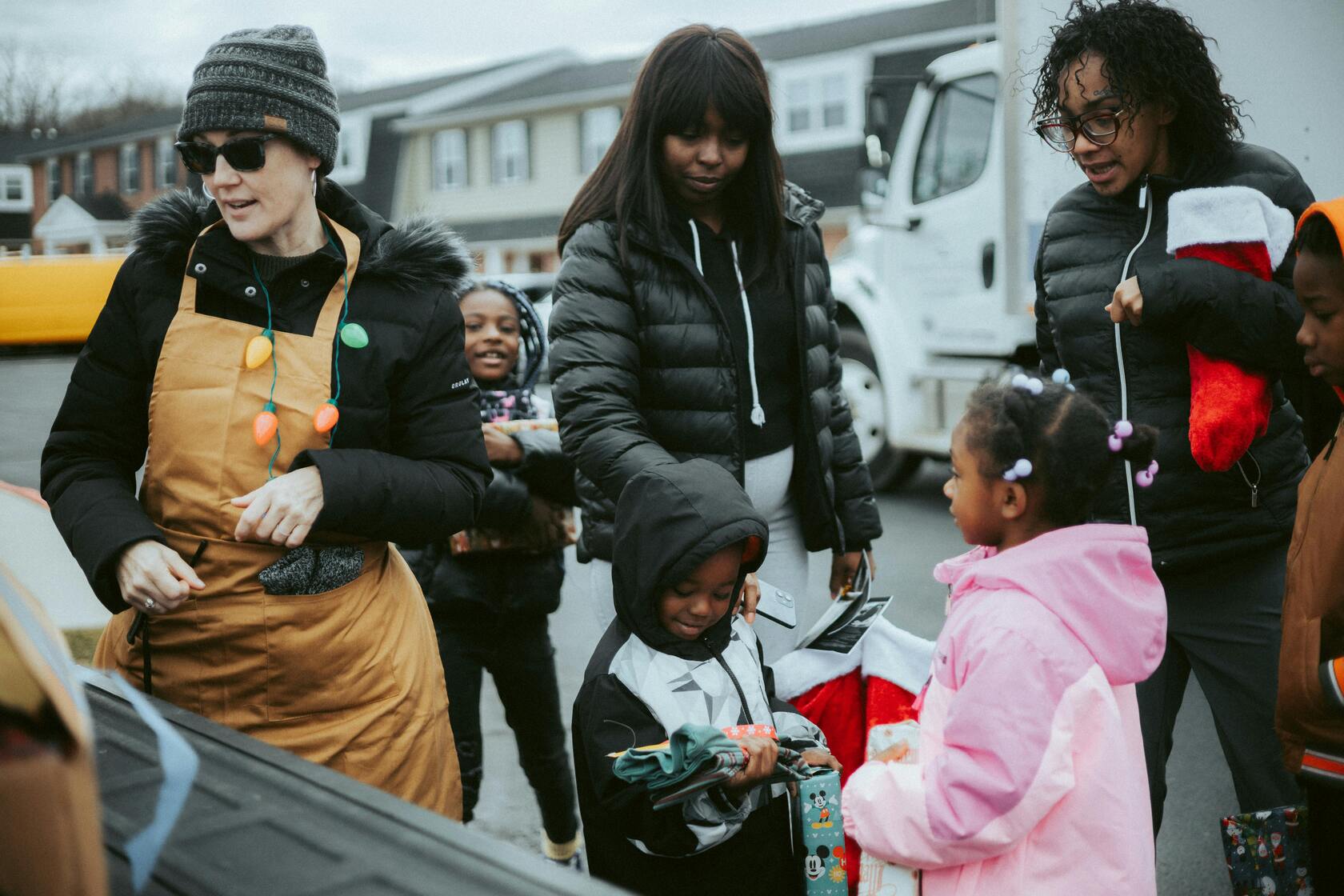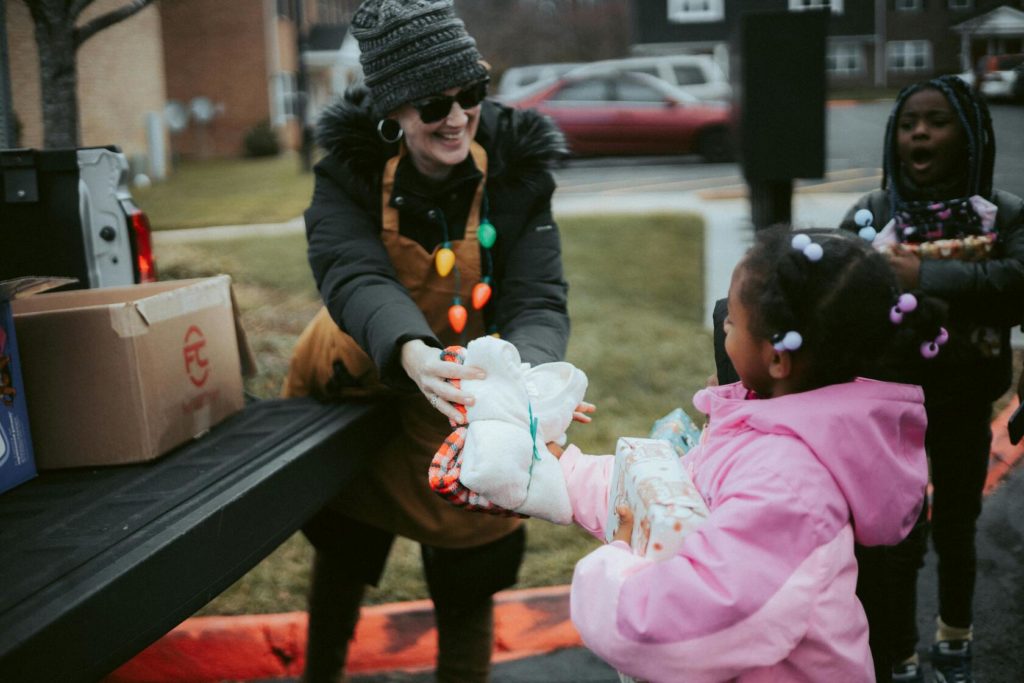In a world where time is often considered one of our most valuable resources, choosing to give that time to help others can have profound and lasting effects—not just on the recipients of the help but on the volunteers themselves. Volunteering is one of the most powerful ways to build stronger, more resilient communities, where individuals feel connected, supported, and invested in the well-being of their neighbors.
The act of volunteering goes beyond providing services to those in need; it fosters empathy, deepens personal growth, and encourages collaboration. Whether it’s mentoring youth, working at a food bank, or participating in environmental clean-up efforts, the act of contributing time and energy to a cause has the power to bring people together and strengthen the social fabric of a community.
Volunteering: A Catalyst for Community Resilience
Community resilience is the ability of a community to withstand and recover from challenges—be they economic, social, or environmental. When individuals choose to volunteer, they become an integral part of this resilience. By offering their time to support causes like feeding the hungry, mentoring at-risk youth, or caring for the environment, volunteers are contributing to the community’s ability to handle adversity.
Take food banks, for example. They provide essential services to families who are struggling to put food on the table. Volunteers are the backbone of these organizations, sorting donations, preparing meals, and ensuring that resources are distributed efficiently. In the wake of natural disasters or economic downturns, food banks often experience increased demand, and the contributions of volunteers can make the difference between a family going hungry or receiving a meal. By providing a steady flow of assistance, volunteers help food banks remain agile and responsive to community needs, strengthening the overall resilience of the community.
Another area where volunteering builds community resilience is through disaster relief efforts. Whether it’s cleaning up after a flood, providing shelter in the aftermath of a fire, or helping rebuild homes after a hurricane, volunteers play a vital role in recovery. When individuals step up to assist their neighbors in times of crisis, they demonstrate the strength of a community that can come together and overcome challenges as a collective.
Personal Growth Through Volunteering
While the primary goal of volunteering is often to help others, one of its lesser-discussed benefits is the personal growth experienced by those who give their time. Volunteering provides opportunities for individuals to develop new skills, gain a broader perspective on the world, and foster a sense of purpose. It encourages people to step out of their comfort zones, meet new people, and engage with issues that may not directly affect them but are crucial to the community.
For example, someone volunteering at a youth mentorship program may find themselves developing leadership, communication, and conflict-resolution skills that are applicable in both personal and professional settings. They may also gain insights into the challenges faced by today’s youth, deepening their understanding of social issues and fostering greater empathy.
Volunteering can also provide a sense of accomplishment and fulfillment. Many people feel disconnected in today’s fast-paced, digital world, but volunteering offers a chance to make tangible, real-world contributions. Whether it’s planting trees, tutoring a child, or providing care for elderly neighbors, volunteers often find themselves leaving with a sense of satisfaction, knowing that their time has made a difference.
Fostering a Sense of Belonging
One of the most significant yet understated benefits of volunteering is the way it fosters a sense of belonging. As people come together to work toward a common cause, they forge bonds with their fellow volunteers and the communities they serve. This sense of belonging is particularly important in a time when feelings of isolation and loneliness are on the rise.
Participating in volunteer activities can bridge social divides. In a world where individuals are often separated by age, income, education, and cultural background, volunteering offers a space for people from all walks of life to come together. In working side by side, individuals learn from one another, break down stereotypes, and form connections that may not have existed otherwise. These connections help create a stronger, more cohesive community, where people feel like they are part of something larger than themselves.
Moreover, this sense of belonging is reciprocal. While volunteers benefit from the relationships they build, the communities they serve often feel a deeper connection to the volunteers who offer their time and effort. This mutual exchange of goodwill helps cultivate trust and solidarity, essential ingredients in creating a robust community.

How to Get Involved: Finding the Right Fit
Volunteering opportunities are as diverse as the communities that need them. For those looking to get involved, the key is finding an organization or cause that resonates with their interests and skills. Here are a few ways individuals can contribute to their communities:
- Food Banks and Soup Kitchens: Volunteering at food banks and soup kitchens is one of the most direct ways to support those in need. From sorting food donations to preparing and serving meals, volunteers play a crucial role in ensuring that food reaches those who need it most.
- Mentoring Programs: Youth mentoring programs provide an opportunity to guide and support the next generation. Mentors serve as role models, helping young people develop life skills, confidence, and resilience. This type of volunteering is especially impactful for at-risk youth who may not have access to supportive adults in their lives.
- Environmental Volunteering: Whether it’s organizing local clean-up efforts, planting trees, or participating in wildlife conservation projects, environmental volunteering allows individuals to contribute to the well-being of the planet. These efforts not only improve the environment but also help build community by encouraging people to come together for a shared purpose.
- Elder Care and Companionship: For many elderly individuals, especially those who live alone, social isolation can be a serious problem. Volunteers who spend time with seniors, whether through companionship programs or assisting in nursing homes, provide invaluable support. These interactions not only improve the mental and emotional health of seniors but also offer volunteers a chance to build meaningful relationships.
- Disaster Relief: When natural disasters strike, communities often rely on volunteers to assist with everything from distributing supplies to rebuilding homes. Volunteering in disaster relief efforts is a powerful way to help those in need during critical times, while also strengthening community bonds.
- Skill-Based Volunteering: Some individuals may choose to volunteer their professional skills to help non-profit organizations. This could include providing pro-bono legal advice, offering marketing expertise, or helping a charity improve its financial management. Skill-based volunteering allows professionals to make a difference by leveraging their expertise in a meaningful way.
The Long-Term Impact of Volunteering
The long-term impact of volunteering extends far beyond the immediate assistance provided to those in need. By giving their time and energy to support local causes, volunteers help build a culture of service and civic responsibility. Communities where volunteering is the norm tend to be more connected, resilient, and supportive, creating a virtuous cycle where individuals are more likely to step up in times of need.
Moreover, volunteering has a ripple effect. When individuals see others giving their time, they are often inspired to get involved themselves. This creates a culture of collective action, where the community as a whole becomes stronger, more engaged, and more compassionate.
ICW Says:
Volunteering is about more than just giving your time—it’s about contributing to the greater good of the community, fostering connections, and building a more resilient, compassionate society. The time that individuals give to help others can have an immeasurable impact, not only on the lives of those they serve but also on their own sense of purpose and belonging.
As we navigate an increasingly complex world, the role of volunteering in building stronger communities cannot be overstated. By offering our time to causes that matter, we not only uplift those in need but also create the kind of community we all want to live in—one defined by empathy, connection, and mutual support.
You may also like
-
Jacqueline Carson on The Mind-Body Connection: How Your Thoughts Shape Your Health
-
Coffee with the Universe: Creating a Sacred Daily Practice
-
Aliesha Embleton on Building Resilience and Self-Care: A Lifelong Foundation for Growth
-
Dr Stacey Anwin on Writing for Self-Care
-
ADHD-Friendly Self-Care Practices: How to Prioritise Your Mental, Emotional, and Physical Wellbeing
